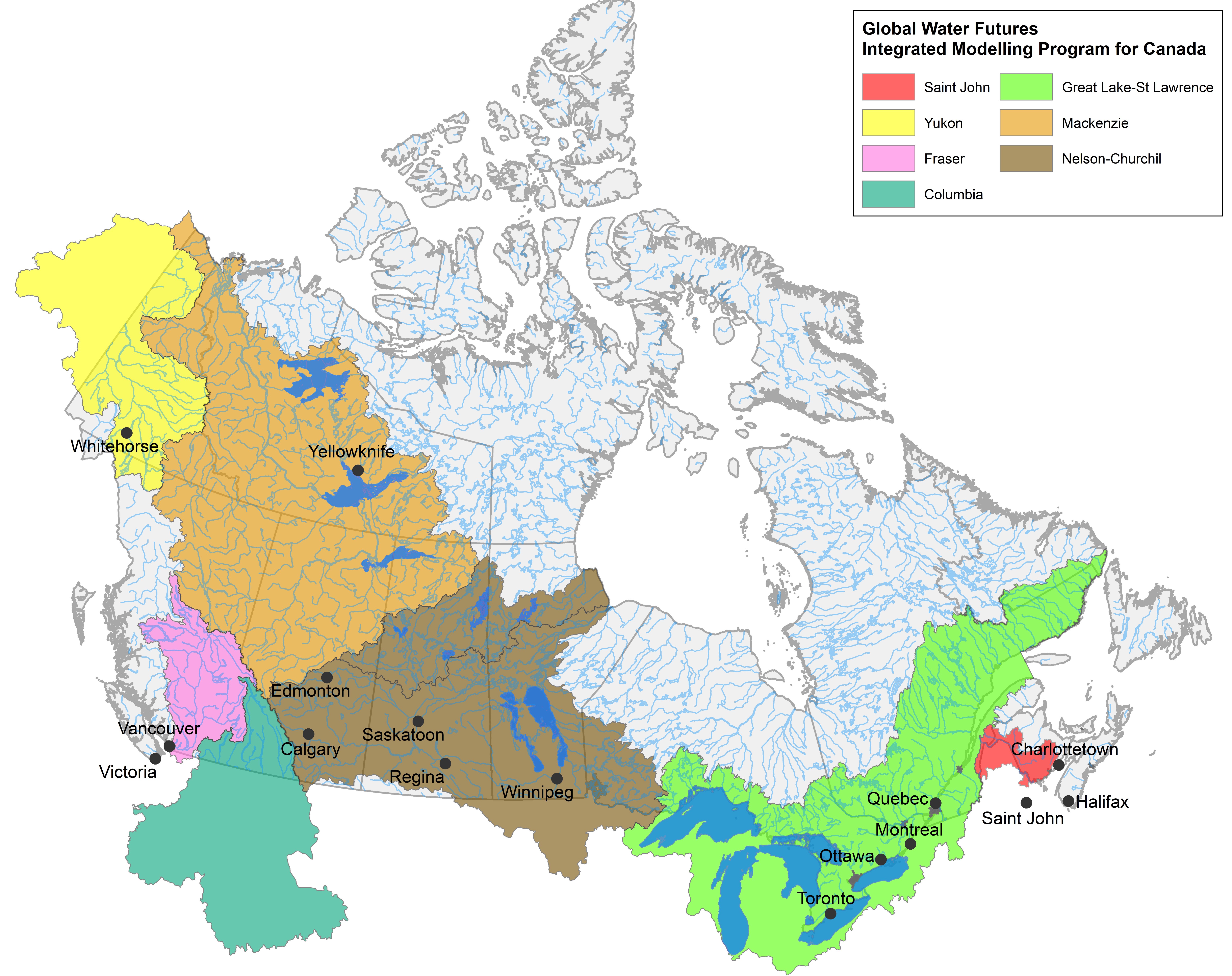Research Context
IMPC offers innovative modelling tools and social experiments aiming to reduce water-related threats and support the transition to new environmental governance and management regimes in seven major river basins:

Canadian landscapes, ecosystems and water environment are at the forefront of climate change. River basins are challenged by increasing water demands, high nutrient loads, warming temperatures, altered patterns of rainfall, snowfall, snowmelt and freeze-thaw cycling, glacier loss and permafrost thaw, and changes in river flow regimes. These changes have increased the severity and frequency of extreme events, leading Canada to experience catastrophic natural disasters in recent years; the 2013 Alberta floods, 2013 Toronto flood, 2016 Fort McMurray wildfire and 2001-2004 Prairie droughts caused damages exceeding $20B.
In addition to global warming-induced changes, human interventions have significantly affected Canada’s river basins. Infrastructure developments such as dams, diversions, and irrigation networks, along with industrialization and urbanization, have altered the natural water-cycle. Pollution from population growth, industrialization, and agriculture has degraded water quality in many regions. The implications of human-driven changes and their interactions with the natural environment, have not been adequately understood and characterized, however. The major challenges that impede effective characterization, prediction and management of future water resources and timely mitigation of natural hazards under the changing climate and environment include:
- Failure to link important features of climate, hydrology, water quality, ecosystem, and water management systems. Important positive and negative feedback loops, tipping points, and dynamical behaviour of these human-natural systems are not included in current modelling schemes. The result is that predictions of future water resources lack credibility under new conditions and extremes.
- Fragmentation in operations, management, and governance of Canadian water resources systems leads to piecemeal science, policy, and modelling. Our research transcends artificial boundaries (international, provincial, and local) and provides basin-relevant information at scales appropriate for decision-making. Many water decisions are in fact made at the local scale but within larger regional and global contexts.
- Current practice assumes stationarity, the idea that the past empirical record is a basis for understanding the present and future conditions. We now know that stationarity is dead and that our environmental systems are in the throes of unprecedented climate and environment change.
A more holistic, integrated and inclusive approach is urgently needed to provide the next-generation modelling and management tools that can address emerging threats to water security in an era of global change, and deliver more credible predictions of future water resources, early disaster warning, and innovative solutions in support of decision and policy making. These significant challenges of environmental and societal change call for new modelling frameworks, research strategies, and decision tools to facilitate climate adaptation and sustainability of water systems. Business-as-usual water science and management are unlikely to prepare our water systems for a non-stationary world characterized by high levels of complexity, uncertainty, scale dynamics, and fragmented governance.

